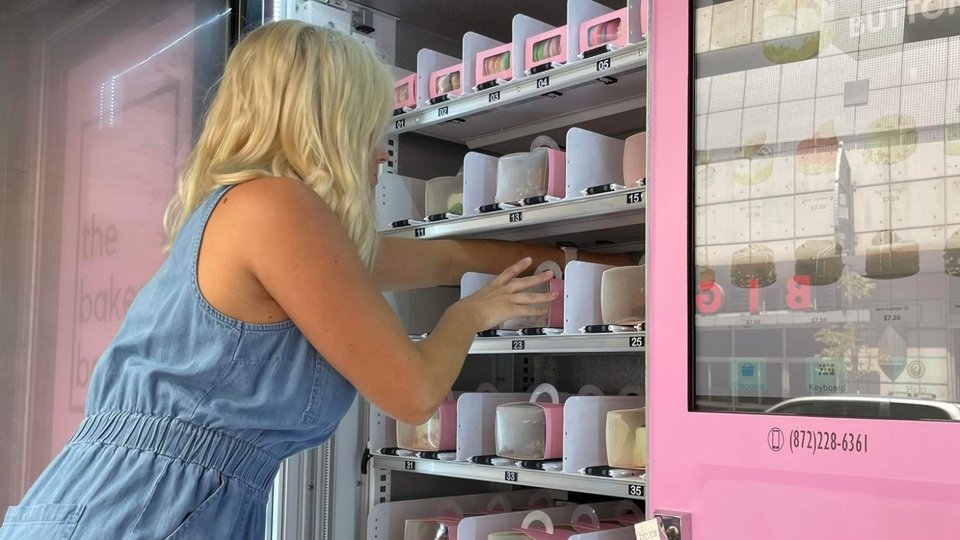Commentary
How partnering with vending operators helps businesses thrive amid supply chain woes
Small businesses are finding that hosting vending machines allows for diversification of product offerings and enables them to introduce products to new markets.

April 4, 2022 by Bryan Hebert — Executive Vice President of Sales, Nayax
Global supply chain issues have impacted every area of business, from price increases to shortage of materials. In the U.S., companies ranging from large corporations to small businesses have felt the effects of this crisis. While large corporations may appear better suited to overcome these issues, small businesses have a secret weapon of agility that enables them to get ahead amid the supply chain crisis: partnering with vending companies.
Since the outbreak of the coronavirus pandemic, the supply chain has taken a hit at every level. With markets now largely globalized, businesses have come to rely on the supply chain to meet consumer demand, with any crack along the chain causing a negative ripple effect.
Enter vending machines. Vending machine businesses allow for flexibility in price, location and diversification of product, which enables small businesses to easily introduce their products into new markets. This makes the supply chain crisis a growth opportunity, rather than an inhibitor.
Diversity in product
While product inconsistency is less than ideal for most businesses and supply chain managers, vending machine owners view the inconsistency as an opportunity to introduce new products to their markets. If they are unable to receive one product, owners can easily pivot to another, with minimal disruption to their operations.
Overall, diversification in vending machines can be increased by going straight to the source. By connecting with vending machine owners, small and local businesses can cut out the middleman and sell their specialized, locally sourced products in new markets. Forming partnerships with vending businesses can increase sales in the short-term and lead to a more sustainable long-term relationship.
There's a vending machine for that
An additional benefit to vending machines is the ability operators have to easily update the machine's products, based on both product availability and industry trends. Machine owners are increasingly thinking outside the box, selling everything from soft drinks, to masks, to sea moss, to donuts and oysters. This broad range empowers small businesses to find a vending machine that is a suitable fit for their products.
Experienced vending machines owners are aware that customers tend to buy more from machines that appear to be well stocked, rather than those with empty coils. Knowing this creates a unique opportunity for small businesses to work together with machine owners to ensure their machines remain fully stocked. It doesn't take a lot of product to stock a machine, meaning that small business owners can regularly communicate with vending machine owners to offer new products to their markets.
Costs low, flexibility high
Vending machines have low operational costs, especially when they use a comprehensive management system. Efficient management helps vending machine business owners keep track of what is selling at specific locations. Having this information makes it easy for vending machine owners to request specific products from small businesses, without running the risk of facing supply chain shortages and a consequently empty machine.
In addition, management platforms typically include vending machine picklists, which help manage inventory more efficiently, resulting in lower labor and transportation costs. Recognizing exactly what needs to be filled and when, a vending business can increase its efficiency and make sure that machine stock is always at least at par level — allowing small businesses to continuously offer product to the machines.
Another feature increasing productivity is the ability to perform remote price changes. This lets operators be agile and responsive to fluctuating costs resulting from supply chain issues.
An effective vending management platform also helps machine owners better know their customers and respond to their demands. These platforms then enable business owners to leverage customer loyalty tools to boost sales. Small businesses can benefit from the knowledge machine owners gather by selling their products, leading to increased brand awareness.
Know the shortages
If small business owners remain aware of what is happening in the supply chain market by keeping an eye on prices, trends and competition, they will increase their odds of formulating a successful vending machine relationship. Knowing what and where the shortages are make it easier for small business owners to offer in-demand products to vending machine owners when they are needed most.
Small businesses that operate out of a brick-and-mortar location do not have the convenience of staying open 24/7. However, it is no secret that 24/7 operations increase profit margins. Partnering with vending machines to combat the supply chain issues enables small businesses to increase profits and have their product available in convenient, high-traffic locations any time of the day or night.
Many vending machines also increase convenience by offering multiple payment options to accept all forms of payment: from cash, to EMV chip cards, to contactless transactions and mobile payments.
The pandemic has taken its toll on everyone, but it has also opened the door for new opportunities. The vending market is no exception. While it has felt the effects of the supply chain crisis, these setbacks have allowed for innovation and mutually beneficial partnerships with small businesses that will continue to diversify and promote growth for both vending machines and small businesses for months to come.
 ChatGPT
ChatGPT Grok
Grok Perplexity
Perplexity Claude
Claude






